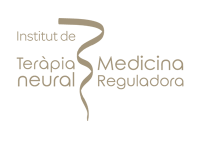The Beginning of Maturity: Menopause

12 Minutes
Imagine if around half of the world’s population were to go through the same life-changing transition, which, if ignored, could significantly affect their vitality and health. This is the current situation for millions of women across the globe who silently struggle with longstanding neglect of menopause due to a lack of awareness. [1]
Described as a late-stage event that marks the end of a woman’s years-long ongoing menstrual cycle, menopause is a critical period of transition with variable experiences. While some women have a smooth transition, others struggle with extreme menopause symptoms and their massive negative impact on everyday life.
With the annual addition of 47 million entrants, the global population of menopausal and postmenopausal women is expected to rise to 1.2 billion by 2030. [2] Understanding menopause and filling the gaps in knowledge regarding its management is crucial to helping women tackle this life-changing period with ease and comfort.
- The average menopause age for most women is 51 years.
- Approximately 80% of women stop having periods by the age of 54 years.
- Menopause can occur at any time, sometimes as early as 45 years (early menopause) or before a woman is 40 (premature ovarian insufficiency)
- Between 20 to 40% of women undergoing menopause suffer from depression
- More than 60% of women are not well-informed about menopause, its symptoms, and management. [3]
Menopause describes the end of a woman’s menstrual period. It is typically confirmed when a woman misses her period for 12 consecutive months without any other cause. It is a natural life event that all women are expected to experience at some point.
Hormones are the primary determinants of female health and menstruation. Any changes to menstruation, including menopause, are typically brought on by the fluctuating levels of hormones in the ovaries. The following are the essential hormones primarily affected during menopause:
- Estrogen: As the primary female sex hormone, estrogen is responsible for the growth and upkeeping of the reproductive organs. Estrogen levels begin dropping during perimenopausal, the transition time leading up to complete menopause, with levels falling to a critically low level.
- Progesterone: This hormone primarily prepares the uterus for fertilization and supports early pregnancy. Following menopause, progesterone production completely ceases, marking the end of your fertile period.
- Testosterone: As you lose ovarian function following menopause, testosterone levels begin to decline. This typically results in symptoms like loss of sex drive, energy, and stamina.
The average age for the onset of menopause is 51 years; however, the phenomenon can hit women at any time between the 30s and the late 50s. Multiple factors come into play in determining the individual menopause age, such as smoking history, body weight, etc. Some experts also believe women have menopause at about the same age as their biological mothers.
While menopause is natural for most women, some can also experience it due to other reasons, such as the following:
- Surgical Causes: Surgical removal of the uterus or ovaries or procedures that reduce the ovarian blood supply can lead to menopause earlier than its natural time. Such women typically have an abrupt menopause following the sudden drop in hormones and experience more severe menopause side effects.
- Medical Causes: Treatment-induced menopause can hit women on treatment for an underlying medical disorder. Examples of these treatments include chemotherapy, radiation therapy to the pelvis, and hormone suppressive therapy.
- Environmental Causes: Increased toxin exposure and pollution can fasten ovarian aging and push back the menopause timing in some women. Exposure to Endocrine-disrupting chemicals or EDCs can make women six times more likely to get menopausal than women with no exposure. [4]
Menopause is a normal life transition that can begin between 35 and 55 years and typically occurs in three stages. During these stages, the ovarian size shrinks, the hormonal synthesis fluctuates, and fertility starts declining. The menopause symptomatology can also vary depending on which stage you are in.
Understanding menopause stages and relevant symptoms can help you anticipate and manage the situation well.
Stage One: Perimenopause
Perimenopause or pre-menopause occurs three to five years before the real menopause. Most women enter perimenopause in their mid to late 40s as their estrogen and progesterone levels begin to decline.
Following are some common signs of menopause at 40:
- Night sweats and hot flashes
- Decreased sex drive
- Frequent mood swings
- Headaches
- Vaginal dryness
- Increasingly irregular and shorter menstrual periods
- Muscle and joint aches
- Poor concentration and brain fog
Stage Two: Menopause
The absence of menstruation for 12 consecutive months without another medical explanation, such as pregnancy, ongoing medication use, or illness, marks the beginning of the second stage, i.e., menopause. [5] Once menopause kicks in, you can no longer get pregnant due to the critically low levels of sex hormones. While most women achieve full menopause at 52, the age bracket can vary significantly, with some achieving it in their mid-40s and others going up to mid-50s.
Hot flashes are one of the most common menopause symptoms during stage two, along with increased heart rate. Other issues you may experience at this point include the following:
- Urinary incontinence
- Increased facial hair growth
- Hair thinning
- Decreased breast fullness
- Urinary incontinence
Stage Three: Post-Menopause
Post-menopause is the final stage of the menopausal cycle and officially marks the end of your reproductive years. With critically low levels of progesterone and estrogen, your ovaries are no longer able to produce or fertilize eggs. Post-menopause is an irreversible stage, and many women entering it continue to a mixture of perimenopausal and menopausal symptoms, such as:
- Hot flashes and night sweats
- Urinary issues
- Vaginal dryness
- Mood changes, including anxiety, depression, and irritability
- Sleep disturbances
- Elevated heart rate
Fortunately, most of these symptoms dissipate over time. However, the halted production of estrogen and other hormones can put you at an increased risk of osteoporosis and heart disease.
Menopause can be a challenging time for women and requires a combination of physical, psychological, and social support during and following the transition. Following are some key components of menopause treatment and care to keep in mind:
Hormone Replacement Therapy
Hormone replacement therapy, or HRT, is the most effective menopause treatment to date for improving quality of life and symptom control. It has also been shown to significantly cut down the risk of some of the most commonly reported menopause side effects, including osteoporosis and cardiovascular disease. [6]
HRT involves the use of female hormones, estrogen and progesterone. The therapy typically begins in the perimenopausal and menopausal stages and aims to replenish the depleted hormones through the following:
- Hormone pills
- Skin patches
- Vaginal creams
HRT may involve trial and error as the doses of estrogen and progesterone need individual adjustment until the optimal replacement dose can be achieved. Despite the high success rate, HRT may predispose you to certain risks, such as stroke, breast cancer, and clots in veins. Having a detailed conversation regarding risks and benefits is the most sensible way of going forward prior to commencing treatment.
Nutritional Support
A healthy diet plays a crucial role in the management of your menopause symptoms while protecting you against long-term health issues due to declining estrogen levels. Following some dietary tips to keep in mind to maximize quality of life and improve symptom control:
- Eat plenty of calcium and vitamin D-rich foods to preserve bone health. Some good sources include dairy products, leafy green vegetables, salmon, canned sardines, fortified breakfast cereals, and bread, etc.
- Soak in sunlight to encourage the natural production of vitamin D. Adequate vitamin D levels enhance calcium absorption from diet and maintain good bone density. Women living in colder areas with limited access to sunlight can consider taking a daily vitamin D supplement, particularly during winter.
- Pay attention to portion size and ensure you are eating according to your needs. Aging can slow down metabolic rates, lowering the daily calorie requirements. Overeating in such a situation can lead to weight gain, which worsens certain menopause symptoms and increases the risk of heart disease.
- Consider eating five portions of vegetables and fruit daily while cutting down on ready meals and processed food.
- Reduce the daily intake of refined carbohydrates and sugary foods. These foods can cause sharp rises and falls in blood glucose levels, leaving you drained and tired.
- Watch out for your daily salt intake and ensure you take no more than 6 grams daily.
- Consider eating food rich in phytoestrogens, such as lignans and isoflavones. These natural chemicals have a similar structure as estrogen and can provide relief against vaginal dryness and hot flashes. Some good sources of lignans include linseed, fruit, vegetables, and cereals, whereas soya is naturally present in chickpeas, lentils, green beans, soya beans, tofu, and texturized vegetable protein.
- Reduce your daily alcohol and coffee intake better to manage specific symptoms, like night sweats and flushes. Caffeine, alcohol, and spicy food can also trigger mood swings while increasing the risk of bone weakening and fracture.
Complementary Therapies
In addition to medical and dietary interventions, complementary therapies are also advised by professionals as an adjuvant to menopause cure. These interventions do not fall within the mainstream healthcare system but can be used alongside traditional medical treatment for better management.
Following are some examples of complementary therapies to consider for menopause management:
- Cognitive Behavioral Therapy: With up to 40 percent of menopausal women suffering from depression and other mood issues, cognitive behavioral therapy can be a great way to offload the mental burden associated with this condition. CBT can equip you with multiple practical ways to manage ongoing problems and provides healthier coping skills to improve the transition. Dealing with stress and anxiety due to menopause with CBT can also help with the physical symptoms. Paced breathing is an important part of CBT, which can particularly help women deal with hot flashes more easily.
- Reflexology: Scientists have been exploring reflexology as a potential way to improve hot flashes and sleep in menopausal women. Though the results so far are varied, many women have reported it as an effective approach to managing sleep issues and hot flashes.
- Acupuncture: This Chinese technique involving needle insertion at certain body areas has also been proven to relieve menopausal symptoms, like anxiety, insomnia, and hot flashes, by balancing hormones.
- Massage: Regular massage sessions boost blood circulation, reduce anxiety and stress, and relieve menopause symptoms.
- Exercise: Workouts can help boost mood, improve energy levels, and improve the overall quality of life following menopause. Experts recommend 150 minutes of moderate-level exercise every week for greater benefits. Targeted exercises, such as pelvic floor exercises, can also help control urinary incontinence.
- Mindfulness: Mindful activities, including yoga, have been touted as one of the best ways to reduce the element of stress and promote mental peace. For menopausal women, these activities can calm the ongoing mental chaos while giving them a fresh perspective on life.
Lifestyle Management
In addition to HRT with adjuvant dietary modifications and complementary therapies, specific lifestyle tweaks can significantly contribute to symptomatic relief. Some of these tips to practice in day-to-day life include the following:
- Consider dressing in layers to remove them during a hot flash easily.
- Use breathable cotton clothing, bedding, and lingerie.
- Apply local lubricants to combat vaginal dryness, especially before engaging in sexual activity.
- Keep an ice pack handy to ease a hot flash and night sweats.
- Get regular breaks for rest to keep your energy levels up
- Consider stopping smoking as it can cause a further dip in your estrogen levels and worsen the symptoms.
- Keep a diary of your symptoms to understand the potential triggers and make management easier. For instance, eating spicy food or drinking alcohol has been known to worsen hot flashes.
- Work on improving your sleep hygiene to control your symptoms.
- Meet with family and friends and do not feel shy to share your struggles.
- Get your current medications reviewed to see if any of them are contributing to the menopause symptoms. [7]
Despite being an expected physical and holistic transition in half of the population, menopause remains a taboo in many circles. The complexity of this transition goes beyond the stereotypical mood swings and hot flashes to encompass a blend of variable hormonal, emotional, and physical changes. Understanding what menopause is and how it can impact the coming years can help you prepare for what’s about to come and make smarter choices.
[1] Lancet T. Attitudes towards menopause: Time for change. Lancet (London, England). 2022 Jun 18;399(10343):2243.https://pubmed.ncbi.nlm.nih.gov/35717972/
[2] Hill K. The demography of menopause. Maturitas. 1996 Mar 1;23(2):113-27.
[3] Harper JC, Phillips S, Biswakarma R, Yasmin E, Saridogan E, Radhakrishnan S, C Davies M, Talaulikar V. An online survey of perimenopausal women to determine their attitudes and knowledge of the menopause. Women’s Health. 2022 Jun;18:17455057221106890.
[4] Grindler NM, Allsworth JE, Macones GA, Kannan K, Roehl KA, Cooper AR. Persistent organic pollutants and early menopause in US women. PloS one. 2015 Jan 28;10(1):e0116057.
[5] Grant MD, Marbella A, Wang AT, Pines E, Hoag J, Bonnell C, Ziegler KM, Aronson N. Menopausal symptoms: comparative effectiveness of therapies.
[6] Hodis HN, Mack WJ. Menopausal hormone replacement therapy and reduction of all-cause mortality and cardiovascular disease: it is about time and timing. The Cancer Journal. 2022 May 1;28(3):208-23.
[7] Ahmadieh H, Jradi N. Prevalence of menopausal hot flashes in Lebanon: A cross-sectional study. International Journal of Reproductive BioMedicine. 2021 Sep;19(9):789.
Answering the Common Queries: Menopause FAQs
What are the 1st signs of menopause?
While menopause symptomatology greatly varies from one woman to another, the earliest sign I notice is period irregularity, which gradually decreases in frequency over the next few months. Some women also report increased facial hair growth, low mood, headaches, hot flashes, night sweats, and palpitations as the earliest menopause symptoms at age 47 or more.
How long does menopause last?
I have noted most women start their menopause transition between the age of 45 and 55. This transition can continue for 7 to 14 years depending on various factors, such as the age of onset, ethnicity, race, smoking history, etc.
Can I get pregnant after menopause?
There is a small possibility of conceiving during the perimenopausal period as the hormonal levels are still on the decline. Once full menopause has been achieved following a 12-month absence of menstrual periods, the chances of getting pregnant are significantly lowered. However, because of the underlying variability in how menopause progresses in women, I still advise using contraception for up to a year since the last period if you are 50 and above and two years if you are below 50.
I recommend regular workouts and a good sleeping routine to help prevent mood swings significantly. Learning new ways of stress management, such as journaling and mindful meditation, can also improve mood and general well-being. If lifestyle management does not work, I would also recommend seeking help from a therapist or joining a support group.
Most women with symptoms after 50 do not require a confirmatory test. The diagnosis is typically based on clinical symptoms and judgment. However, if you are below 40 and start showing perimenopausal symptoms, I may suggest having two sets of blood tests one month apart to measure the levels of certain hormones. The purpose of these tests is to rule out premature ovarian insufficiency or premature menopause.
HOW SENSES CAN HELP WITH Women and Men
Senses is a leading provider of luxury addiction and mental health treatment for affluent individuals and their families, offering a blend of innovative science and holistic methods with unparalleled individualised care.
A UNIQUE METHOD
successful and proven integrative holistic conceptOur program consists of treating only one client at a time individually designed to help you with all the problematic aspects of your life. All individual treatment sessions will be held at your private residence.
more infoYour program is designed based on your personal needs. The team will exchange daily information and adjust the schedule as we go. Our therapists will work with you treating integrative not just the symptoms and goes beyong your stay to ensure lasting success.
more infoOur biochemical imbalance can be affected by diet and stressful life events, but it often goes back to genetics and epigenetics. We do specific biochemical laboratory testing to determine an individual’s biochemical imbalance. Combining the results of the lab tests with anamnestic information and clinical tests, we prescribe an individualized and compounded vitamin, mineral, nutrient protocol to help recover from various disease states.
more infoOur experts combine the best from psychological treatment, holistic medicine to support you individually and providing complementary therapies all coordinated from one source working complementing each other integrative.
more infoUsing latest cutting-edge technology-based therapies such as Neurofeedback, tDCS, and SSP, we can track the biological patterns of your body, giving us valuable insight into your health and well-being as well support your brain and body performance and recovery with neuromodulation.
more infoOur chef and nutrition specialist will design your personalized diet plan supporting your body & mind recovery as well as helping with weight management. Nutrition workshops and mindful eating sessions will help you to maintain a healthy lifestyle.
more infoWomen and Men TREATMENT LASTING APPROACH
0 Before
Send Request
0 Before
Define Treatment Goals
1 week
Assessments
1-4 week
Integrative Holistic Therapies
5-12 week
Aftercare
12+ week
Refresher Visit
Women and Men Insights
latest news & research on Women and Men
Menopause And Fatigue
Fatigue during menopause is completely natural and many women undergo it during their transition to menopause
read more
Anxiety During Pregnancy – Is it Normal?
Yes. Anxiety and depression are significant complications during pregnancy, affecting between 20-40% of expectant mothers.
read more
Does Menopause Make You Depressed?
Menopausal depression is influenced by various risk factors that can heighten a woman's vulnerability during this transitional phase
read moreAccreditations




























































